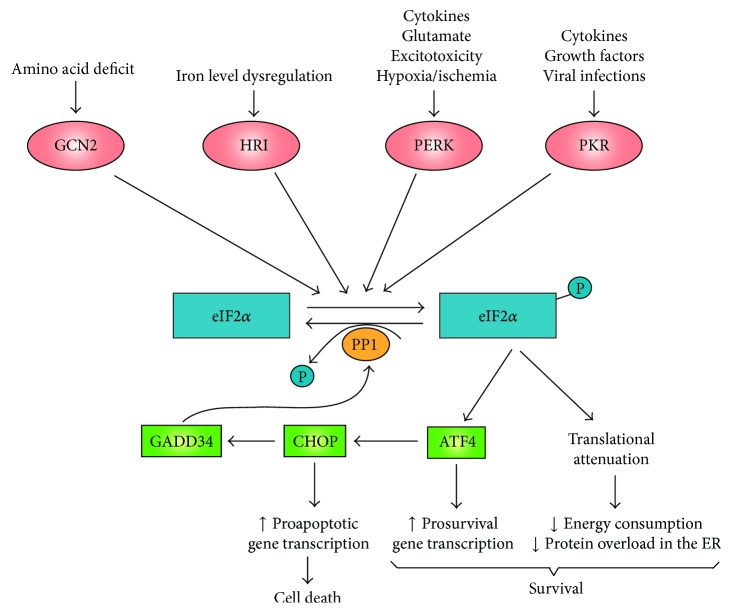Figure 1.
The integrated stress response is sensitive to numerous stimuli activated after CNS injury. A diverse group of kinases such as GCN2, HRI, PERK, and PKR induce the phosphorylation of eIF2α in response to various stimuli resulting in translational attenuation to overcome the accumulation of misfolded or unfolded proteins in the ER and retrieve proteostasis. Phosphorylated eIF2α (eIF2α-P) enhances the translation of the transcription factor ATF4 that induces the transcription of prosurvival genes as well as the transcription factor CHOP. Both ATF4 and CHOP cause upregulation of GADD34 expression, which forms a complex with PP1, inducing the dephosphorylation of eIF2α-P and hence retrieving translation. When protein homeostasis is not restored (indicating cellular damage), CHOP increases the transcription of proapoptotic genes, inducing cell death. ATF4, activating transcription factor 4; CHOP, C/EBP homolog protein; eIF2α, eukaryotic translation initiation factor 2α; GADD34, growth arrest and DNA-damage inducible 34; GCN2, general control nonderepressible 2; HRI, haem-regulated inhibitor kinase; P, inorganic phosphate; PERK, protein kinase RNA-like endoplasmic reticulum kinase; PKR, double-stranded RNA-activated protein kinase; PP1, protein phosphatase 1.

